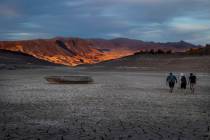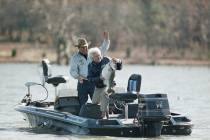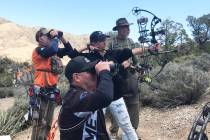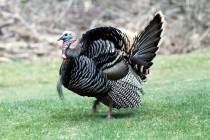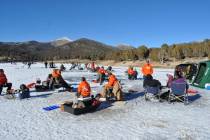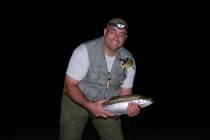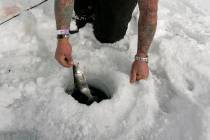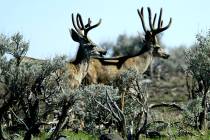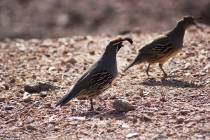Small bird hunting takes more effort, but still rewarding

Chuk! Chuk! Chuk! Chuk!
The call was soft and distant, but it sounded like a chukar partridge to me. “You are probably hearing things,” I thought to myself and continued swapping stories with Paul about our rather lengthy and unsuccessful search for quail and chukar.
I did flush a small covey of quail minutes after leaving the truck first thing in the morning, but was taken by complete surprise. The birds split, and I followed the largest half down a brush-filled draw. Despite my efforts, however, I never saw the birds again. Nor did I hear their gathering call, the one that usually comes after a covey is given time to settle down after being flushed.
While relaying that account, I couldn’t help but miss my hunting dogs. They can make the difference in the outcome of a bird hunt, and I hunted over a dog for more than 20 years. Our visit was suddenly interrupted when we heard a shotgun blast just down the hill from where we sat behind the truck. It was Don, the third member of our group. He was chasing what we later learned was a small covey of eight to 10 quail.
“Maybe he’ll push them our way,” Paul said. But as we waited and watched, there suddenly came another call. This time there was no mistaking it. Chuk! Chuk! Chuk! Chuk!
“That is a chukar!” I exclaimed.
I grabbed my binoculars and turned my attention toward a guzzler situated about 150 yards up the canyon. Sure enough, there was a covey of chukars moving back and forth from the nearby brush to the guzzler. Paul and I couldn’t believe it. We had been through that basin early that morning and hadn’t seen or heard a thing. Yet there they were.
Paul and I hurriedly shrugged back into our hunting vests, grabbed and reloaded our shotguns and started back up the hill toward the guzzler. Somehow our legs seemed to have newfound energy, but the chukars weren’t about to hang around and make things easy for us.
As soon as we left the vicinity of the truck, the birds began running. It was almost as if they had a lookout to warn them of our intention. As we got closer, the birds divided into two groups. Paul followed one group to the right, and I pursued the other to the left. When the birds suddenly flushed, I was surprised to see quail and chukars flying together. I squeezed off a quick shot but hit nothing but air and watched helplessly as chukar and quail did what they do best — fly to higher ground.
Thinking I could head the birds off, I worked my way around and behind the knoll where they had landed. Working my way up a shallow draw, I found a small brush-covered flat where I was sure the birds would be holding tight. But that hope was quickly dashed when I heard the call of chukar from somewhere up the steep slope that climbed toward a rimrock covered ridge.
Chuk! Chuk! Chuk! Chuk!
I focused on the slope and watched as chukars ran up the slope, stopping periodically to look my direction and let go with their familiar call. It was almost as if they would stop just long enough to laugh and cast verbal stones of derision. To top it off, one rather obnoxious chukar stood atop the highest rock on the ridge top and crowed over and over in seeming triumph. Chuk! Chuk! Chuk! Chuk!
I hate chukars!
By the time Paul and I made our way back to the truck, Don was sleeping in the shade of the tailgate. He had bagged two birds — one chukar and one quail. Don added another chukar while we explored another canyon. That day’s take isn’t enough to make a meal, but now we have reason to enjoy a few more hunting adventures.
Though the ongoing drought pattern has suppressed upland game bird populations in Southern Nevada, there are still birds to be found. The key is covering ground and being willing to do the work to dig them out.
Freelance writer Doug Nielsen is a conservation educator for the Nevada Department of Wildlife. His “In the Outdoors” column, published Thursday in the Las Vegas Review-Journal, is not affiliated with or endorsed by the NDOW. Any opinions he states in his column are his own. He can be reached at inthoutdoorslv@gmail.com.



